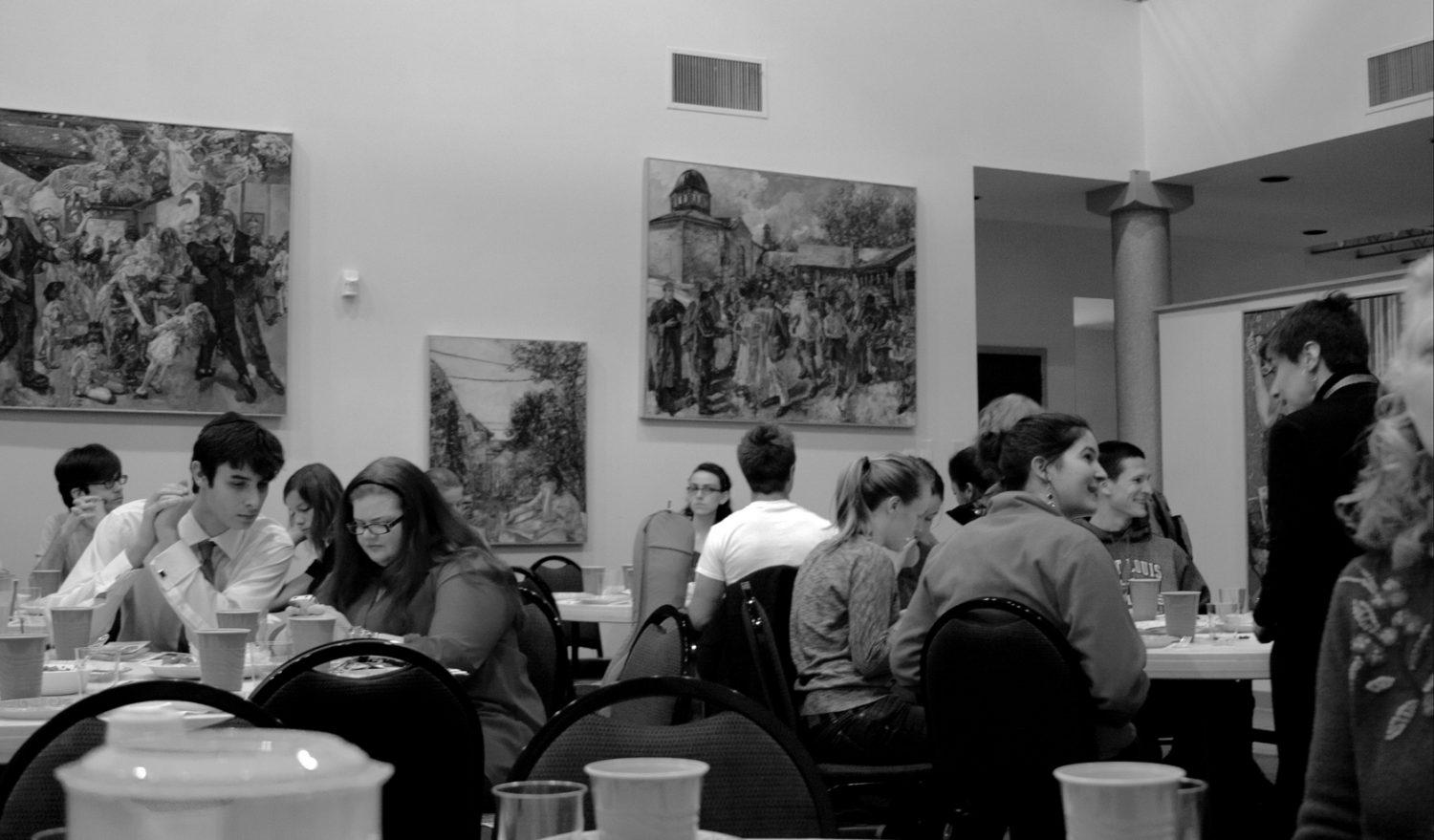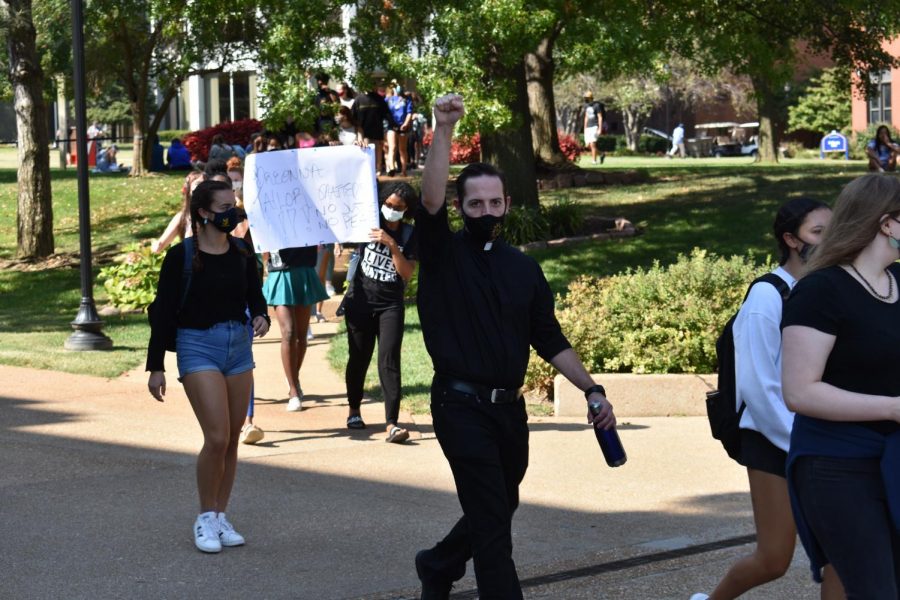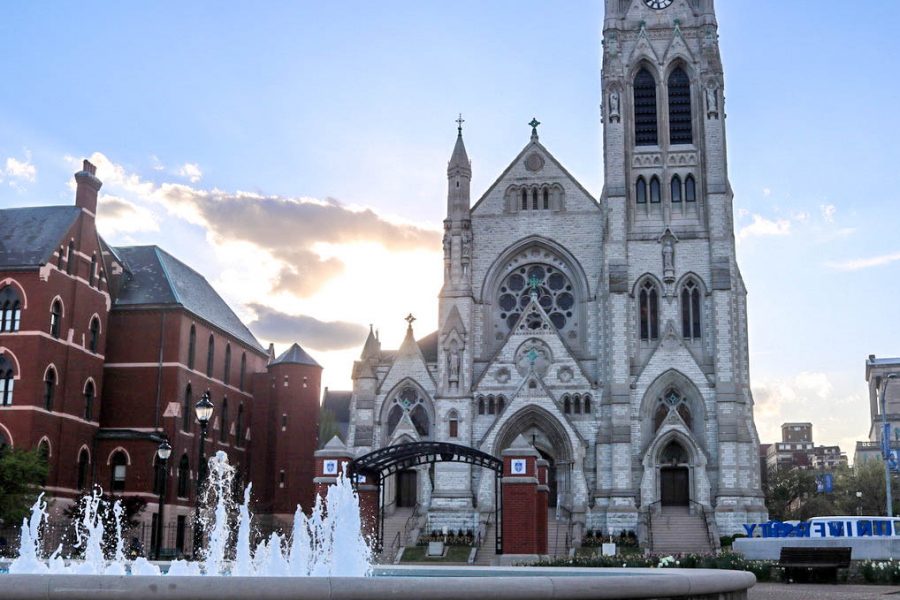There is a fable about a girl who was throwing dying starfish back into the ocean. An old man wondered, “There must be thousands of starfish on the beach, you won’t really make much of a difference.” The girl then picked up another starfish and threw it into the ocean, proclaiming, “It made a difference to that one!” That’s what the Seder inspired: making a difference. The Interfaith Hunger Seder was presented by SLU and the Jewish Community Relations Council (JCRC). The purpose was to raise awareness and instigate action toward ending hunger in America.
The Seder, which was titled, “Let All Who are Hungry Come and Eat,” is a traditional meal for Jewish people during Passover to represent the ancient Hebrews’ escape from slavery in Egypt. Tuesday’s event was designed to inform participants about the growing epidemic of hunger here in the St. Louis area as well as in America as a whole. According to the presentation at the Seder, one in six Americans has trouble putting food on the table. The presentation brought to attention the urgent plight of the hungry in America and raised many questions about why the most powerful country in the world struggles to feed its people.
The invocation was delivered by Fr. Paul Stark, vice president of mission and ministry at SLU. Rabbi Josef Davidson of the Congregation of B’nai Amoona read the Seder Haggadah text.
The word “Seder” is derived from the Hebrew word for order, according to Davidson, and each aspect of the tradition holds meaning. The Haggadah, which sets forth the Seder, is read aloud. Traditionally, four cups of wine are served; each one symbolizes a promise for freedom and joy. Matzah bread, bitter herbs and afikomen, a dessert, all have meaning and are eaten at certain times throughout the Seder.
“[Seder is] all about telling your story,” Davidson said. “That’s what makes Jews strong and successful, telling our stories over and over.”
Attendees later gathered in groups to discuss how and why hunger is a pressing issue in America; explanations ranged from the prevalence of unhealthy fast food to food swamps and food deserts.
Possible solutions were also presented, including donating to nonprofit organizations fighting against hunger and working at soup kitchens and food pantries here in the St. Louis area. Operation Food Search is one such organization that aims to make sure every child in America has access to food and good nutrition.
As a final note, the Seder also listed 10 plagues of today, plagues related to hunger. The 10th plague, the worst of them all, was apathy – apathy toward the issue of hunger, and a lack of understanding how urgent it is. But every time someone acts to fight hunger, whether by donating to organizations, rallying for the cause, raising awareness or volunteering at the soup kitchen, he or she is throwing a starfish back into the ocean and making a difference.
Speakers at the Seder included Renee Marver, chair of Community Against Poverty Coalition, members of SLU Interfaith Alliance, and Gary Wells, of Operation Food Search.






